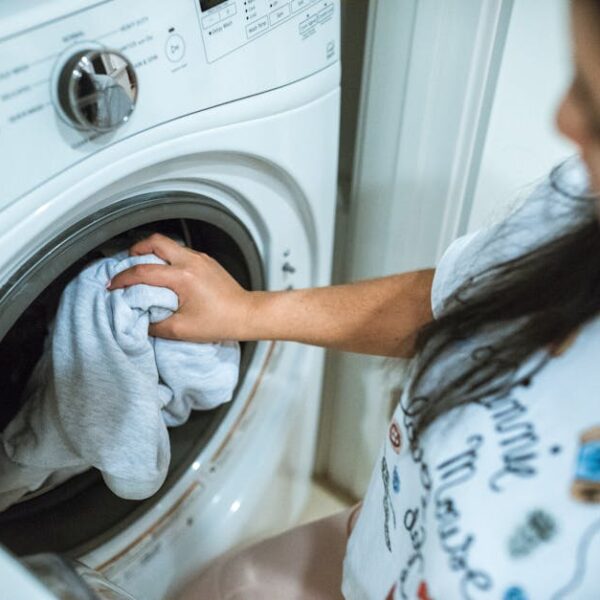In the world of home maintenance and optimised appliance use, understanding the role and application of various products is fundamental. To this end, a topic that often presents confusion is the difference between dishwasher salt and table salt. Despite their shared moniker, these salts serve very different purposes and are not interchangeable.
Understanding Dishwasher Salt
Dishwasher salt is a specially designed product created to counteract the presence of calcium and magnesium ions in hard water. The salt softens the water, preventing these ions from interfering with the dishwasher’s cleaning process. Its chemical composition primarily comprises of sodium chloride (NaCl), yet it’s free from additives found in other types of salt, contributing to its coarse and larger granules.
Pro Tip: While NaCl is present in both dishwasher salt and table salt, it’s important to note that the two are not interchangeable. Dishwasher salt is specifically designed for use in dishwashers due to its coarse texture and composition.
When choosing dishwasher salt, consider the following:
- Grain Size: The larger granules dissolve slower than regular salt, hence better for long-term softening.
- Purity Levels: Opt for salts free from additives that may otherwise damage your dishwasher.
- Package Size: The amount of dishwasher salt you need depends on your water hardness and machine usage.
Taking A Closer Look at Table Salt
Table salt, while also primarily made up of sodium chloride, is designed for taste in culinary applications. Often, it includes iodine and anti-caking agents that keep the salt from clumping, a quality that significantly differs it from dishwasher salt.
When you compare the two, dishwasher salt has significantly larger crystals and a rugged texture, while table salt grains are much finer. This difference in size and texture also plays a role in how they function and their respective applications.
Best Practice: Table salt is often iodized and used in a variety of food preparation methods, adding flavor to dishes. Keep it in the kitchen, away from your dishwasher to avoid mix-ups.
The Significant Differences Between Dishwasher Salt and Table Salt
Although dishwasher salt and table salt share a common sodium chloride base, they are designed with different purposes in mind. Various factors, such as their chemical composition, the size and texture of their crystals, and their intended use, differentiate these two products.
Key Differences:
- Dishwasher salt is coarse and used to soften water in hard water areas.
- Table salt is fine-grained and used for culinary purposes.
Assessing the efficacy, cost, and potential disadvantages of each type of salt is crucial to ensure you’re using the correct product for your specific needs. Understanding each salt’s pros and cons allows you to prevent damage to your appliances and keep your meals perfectly seasoned.
To be continued…
The Pros and Cons of Dishwasher Salt and Table Salt
Let’s break it down:
| Dishwasher Salt | Table Salt | |
|---|---|---|
| Purpose | Softens hard water for efficient dishwasher operation | Used for seasoning in food preparation |
| Pros | Prevents limescale build-up, extends the life of the dishwasher | Enhances flavor, provides iodine for dietary needs |
| Cons | Can be corrosive if mishandled, not suitable for other purposes | Additives can cause issues if misapplied, not suitable for dishwasher use |
The Consequences of Using Table Salt As Dishwasher Salt
Using table salt in a dishwasher can have detrimental effects. The fine granules of table salt dissolve rapidly, leading to over-concentration of salt ions, which impacts the sensor functionality and may cause corrosive damage to the machine interior. Additionally, the additives, particularly the anti-caking agents, can cause residual buildup.
Warning: Stick to dishwasher-specific salt to avoid unnecessary repair costs and keep your dishwasher in top shape, maximizing its cleaning efficacy.
Unfortunately, a simple graphic demonstration showing the damaging effects of table salt in a dishwasher isn’t available. However, you can imagine the rapid dissolving and the potential buildup like throwing sand into the gears of a machine – it won’t end well!
How to Properly Use Dishwasher Salt
Ensuring you use dishwasher salt correctly can make a massive difference in the longevity and efficiency of your machine. Here’s how:
- Locate the salt reservoir in your dishwasher – it’s usually at the bottom.
- Unscrew the cap and fill the reservoir with salt – use a funnel if needed.
- Replace the cap securely.
- Run a full wash cycle to allow the salt to fully integrate into the system.
Practical Guide: The amount of dishwasher salt needed varies on the hardness of your water and frequency of your dishwasher’s usage. A general rule is to check and potentially refill every month.
Best Practice: As for the brands, some top-rated ones include Finish, Bosch, Miele, and Fairy. Using quality, dishwasher-specific salt helps ensure optimal operation of your appliance, leading to shinier, spot-free dishes.
In conclusion, while table salt and dishwasher salt may share a basic chemical composition, their difference lies in their roles and what they are designed for. Always use the right salt for the right purpose to prevent complications, be it culinary or dishwasher-related. Stick to the guidelines, and you can’t go wrong.
Key Takeaway:
- Dishwasher salt and table salt, despite sharing a chemical component (sodium chloride), have different roles and compositions and are not interchangeable.
- Dishwasher salt has larger, coarser granules and is additive-free, designed to counteract the hard water impact on a dishwasher’s cleaning process.
- Table salt, often iodized and containing anti-caking agents, has finely granulated crystals tailored for culinary purposes.
- Misusing table salt as dishwasher salt can cause significant issues and damage to the dishwasher due to rapid dissolution and build-up of residual additives.
- It’s essential to properly apply the correct type of salt in its designated area, be it in food or dishwasher use.
When it comes to household maintenance and choosing which salt to use in various contexts, having clear and accurate information is crucial. Rest assured that with the knowledge of the differences between dishwasher salt and table salt, and their specific optimal uses, you can confidently keep your dishwasher running at its best and your food perfectly seasoned.
FAQs
Q: Can using table salt in a dishwasher cause health issues if dishes are not properly rinsed afterward?
A: While it’s unlikely to cause significant health issues, it’s always best to thoroughly rinse dishes after washing. Consuming residual table salt additives is not recommended.
Q: Are there different types of dishwasher salt available in the market?
A: Yes, several brands produce dishwasher salt such as Finish, Bosch, Miele, and Fairy. All are designed to work in a similar fashion, but remember to check the specification for optimal use.
Q: Is it unhealthy to consume dishwasher salt accidentally?
A: Dishwasher salt primarily consists of sodium chloride but it’s not designed for consumption. Accidental ingestion in small amounts isn’t likely harmful, but it’s always best to avoid consumption.
Q: Does using dishwasher salt improve the lifespan of my dishes?
A: Indirectly, yes. By using dishwasher salt, you’re ensuring efficient cleaning and minimal residue on dishes, which can contribute to their longevity.
Q: Can I skip using dishwasher salt if I have soft water at home?
A: If your home water supply is soft, you might not need to use dishwasher salt. However, check your dishwasher manual, as some models require salt for the ion-exchange process, regardless of water hardness.
Please feel free to share this article with your friends and family to help them enhance their kitchen wisdom. For more insights like this, feel free to browse through other posts on our website.












